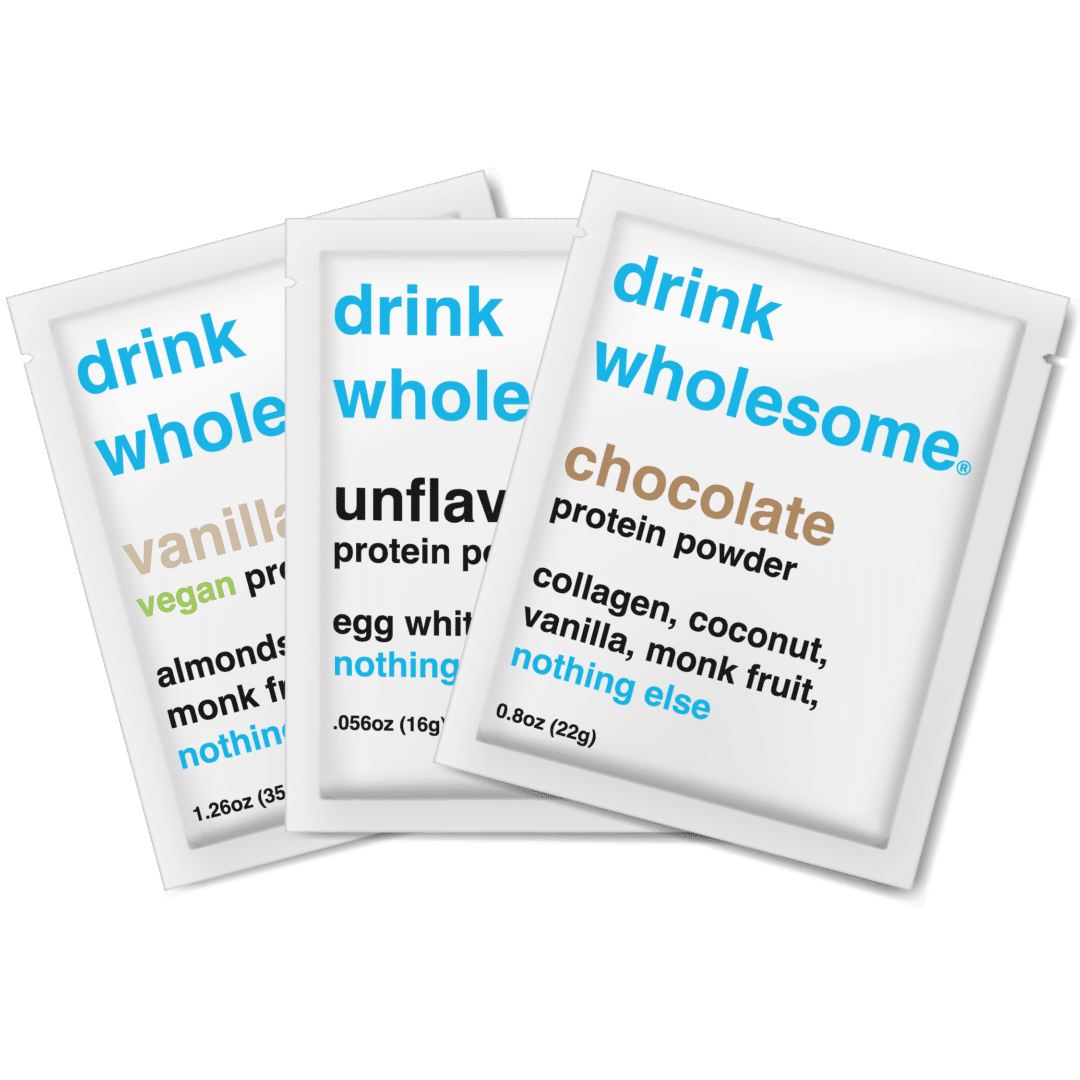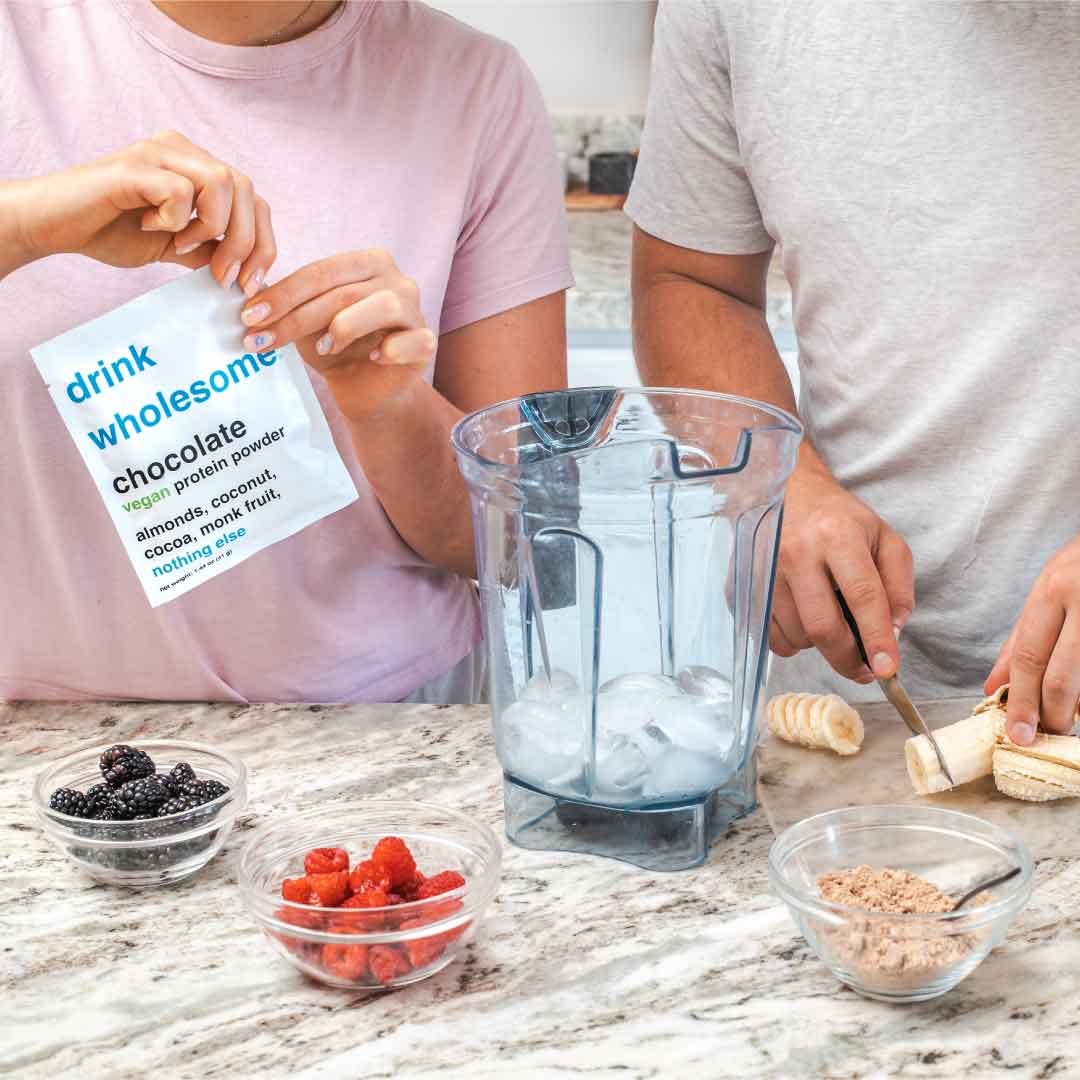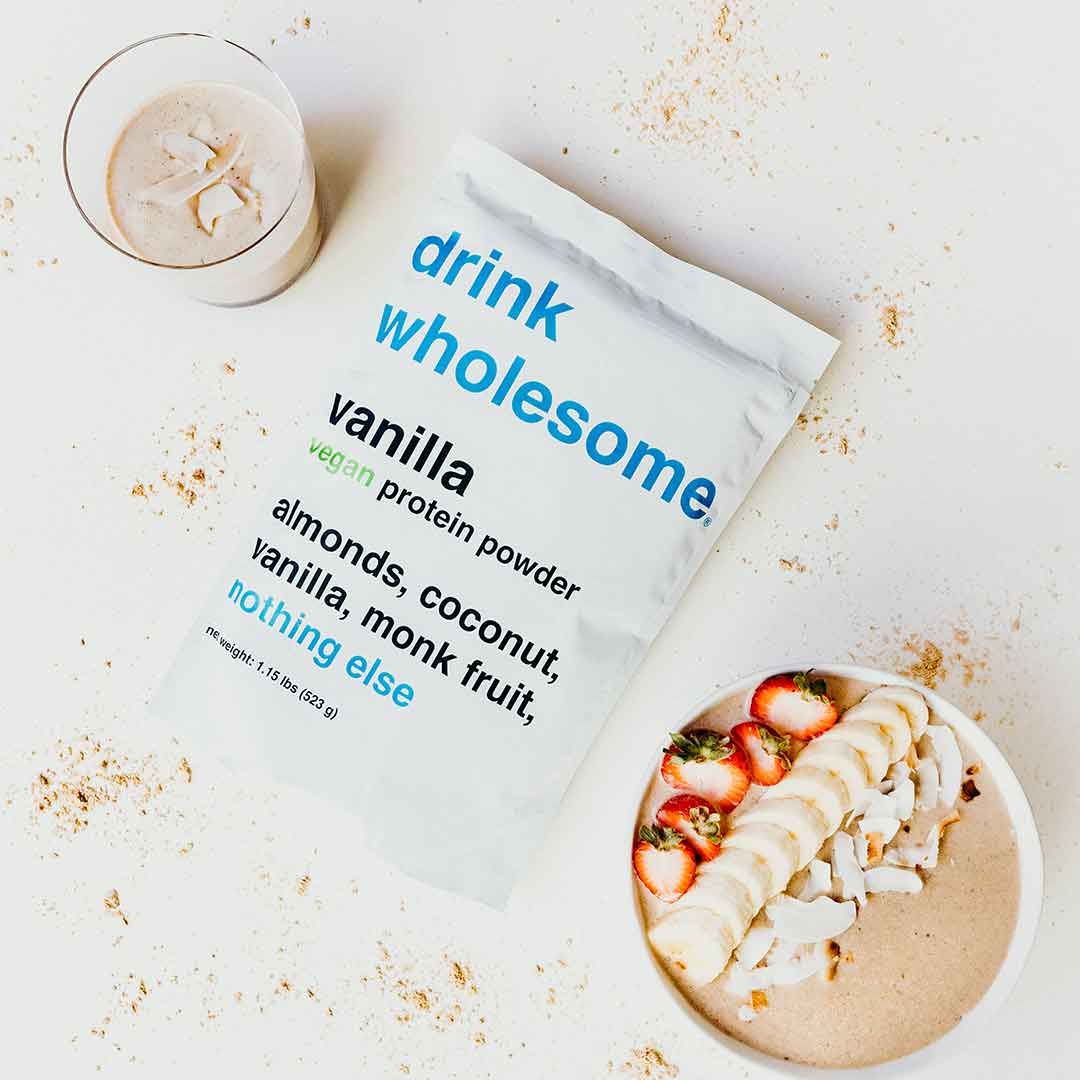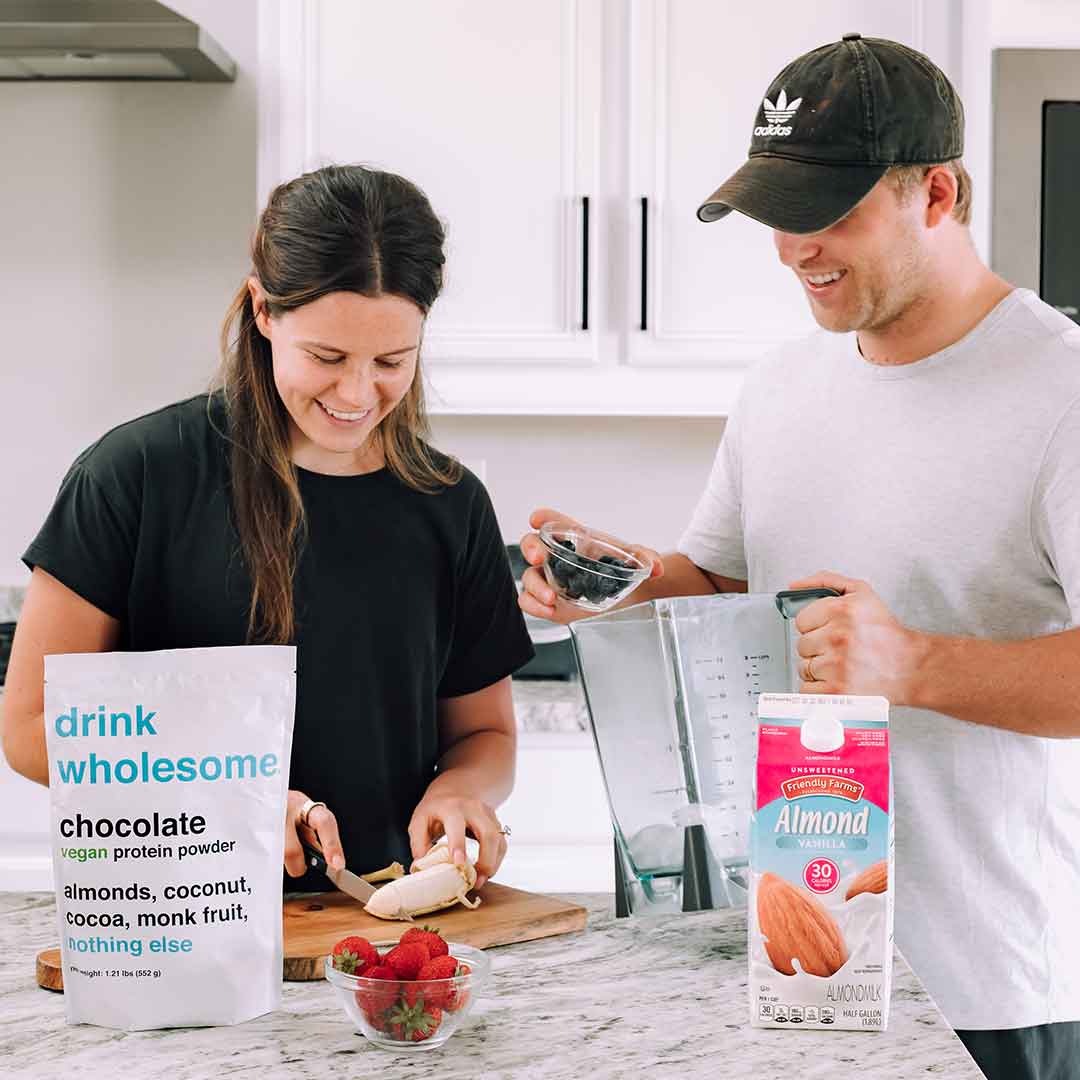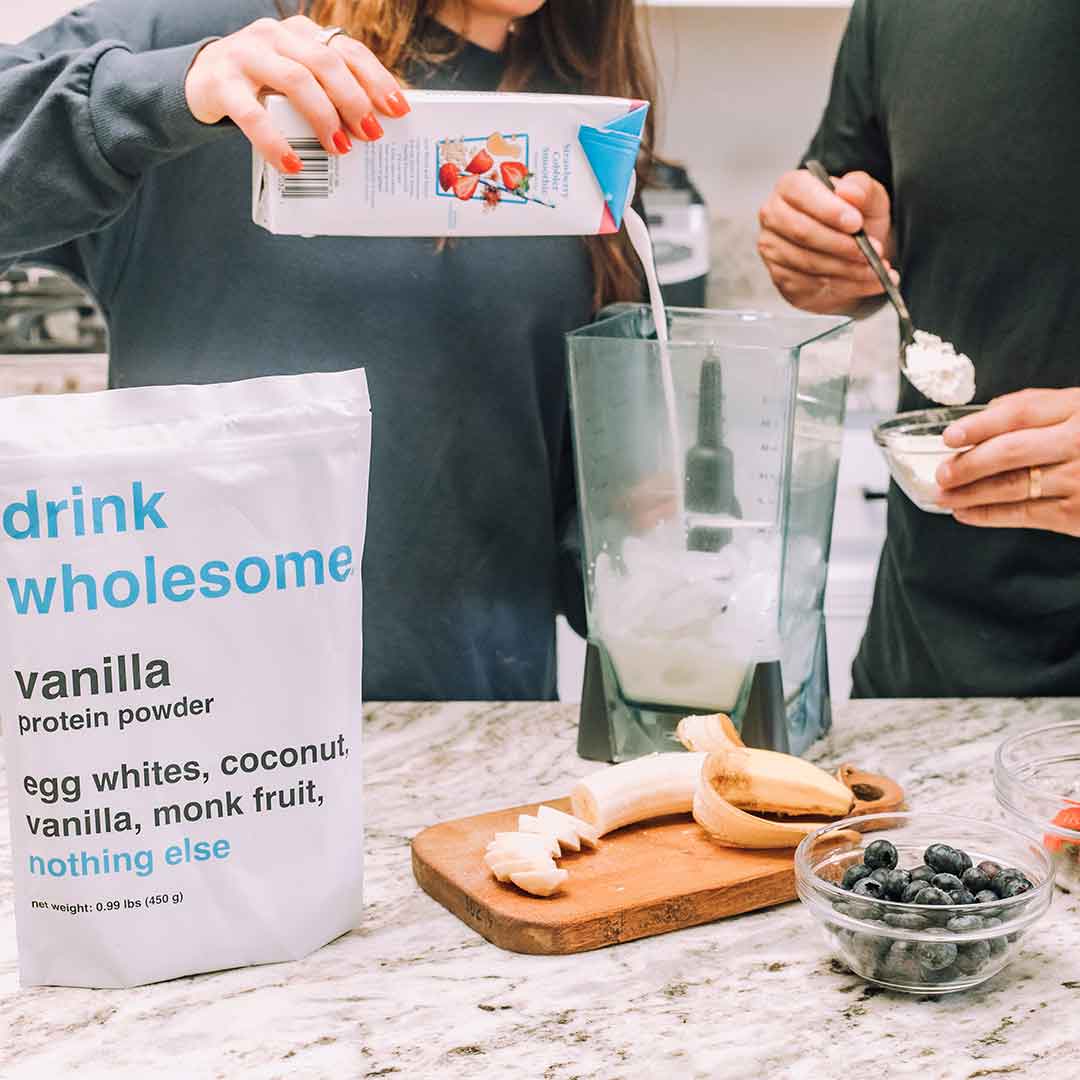How to pick protein powder for diabetics
How much protein do diabetics need?
Two common misconceptions about dietary protein intake in diabetes management are 1) that a certain amount of dietary protein is converted into blood glucose (sugar) and 2) that consuming too much protein can lead to diabetic kidney disease. Both misconceptions have been disproven. On the contrary, eating enough protein helps with blood glucose management, improves satiety (fullness), and can support weight loss. Diabetics need protein just like everyone else, and may even benefit from a high protein diet.
Diabetics should eat at least 0.36 grams of protein per pound of body weight per day. The actual amount you need may be considerably higher, however, depending on your age, sex, etc. Use our protein intake calculator to estimate your recommended daily protein intake.
Most of your protein should come from dietary protein sources like eggs, meat, and fish. Getting enough protein this way can be hard for some people, however, which is where protein powders can help. Adding a scoop of protein powder to your diet is a great way to ensure that you are meeting your protein goals, and even managing your blood glucose. That said, not all protein powders are created equal.
Why is protein important for diabetics?
Blood sugar management
When it comes to managing blood sugar levels, protein plays an important role. Unlike carbohydrates, protein has a minimal impact on blood sugar and can help stabilize glucose levels. Incorporating protein into your diet can thus aid in blood sugar control and contribute to overall health and well-being.
There are several mechanisms by which protein aids in blood sugar control. First, protein stimulates the release of insulin, the hormone responsible for transporting glucose into your cells. This helps you to regulate blood sugar levels and prevent sharp spikes or drops.
Second, protein slows down the absorption of carbohydrates in your digestive system. When protein is consumed together with carbohydrates, it can slow down the digestive process, leading to a more controlled release of glucose into the bloodstream. This can help prevent sudden spikes in blood sugar levels after meals, especially when consuming high-carbohydrate foods.
Third, protein consumption moderates glucose production in the liver, ensuring a steady release into the bloodstream, and reducing the risk of blood sugar fluctuations. Protein accomplishes this by stimulating the release of glucagon, a hormone that promotes the breakdown of glycogen (stored glucose) in the liver. In addition to preventing glucose spikes, moderating glucose production through protein consumption has numerous benefits for diabetics. By maintaining stable blood sugar levels, you can avoid the energy crashes and mood swings associated with sudden glucose fluctuations.
Improved insulin sensitivity and satiety
Protein consumption also plays an important role in improving insulin sensitivity. By incorporating protein into your diet, you can enhance your body’s responsiveness to insulin, which is crucial for regulating blood sugar levels effectively. Protein intake helps stimulate the release of glucagon, a hormone that counteracts the effects of insulin. This balance helps prevent excessive blood sugar spikes and contributes to better overall glycemic control.
Moreover, protein-rich meals promote satiety, keeping you feeling fuller for longer. This can be particularly advantageous for individuals with diabetes who struggle with cravings or overeating. A diet rich in protein can enhance the secretion and action of incretin hormones, such as glucagon-like peptide-1 (GLP-1), which play a role in regulating blood sugar levels and satiety. In other words, by increasing your protein intake, you can reduce calorie consumption and support weight management.


